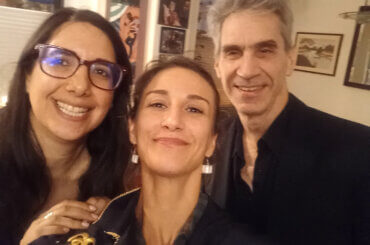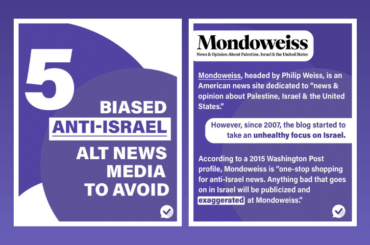| For our summer fundraising drive, “One Story At A Time,” Mondoweiss staffers are sharing stories we’ve published that are special to them. Today’s message is from Walaa Ghussein, Editor-At-Large at Mondoweiss. Read on to learn about what drives Walaa — and please give now. A loyal donor has pledged $20,000 if we can raise $60,000 by August 1. We have just days left to meet our challenge! |
“When I left home, I was told that I will be dealing with PTSD…I later realized that I’m never ‘post’ my traumas. I’m constantly scared for my family, my eight-year-old sister that was born during the blockade, my friends and my country. As a Palestinian, I’m never given a real chance to process because I’m still there even if my body isn’t.”
My heart is wrenched by these words of graduate student Heba Al Hayek. When conducting interviews for this story recently published in Mondoweiss, I heard similar feelings from several other young Palestinians who have left Gaza in recent years — accounts of the psychological impact of decades of settler colonialism and violence.
Expressing these emotions out loud for the world to read — feelings that still sometimes seem off limits — is an important step in our healing process. As Palestinians in exile, we need to tell each other that we’re not alone, and we need passionate people like you to understand what we’re going through. Mondoweiss has enabled us to share these stories with each other, with you, and with the rest of the world. That’s why I’m asking you to contribute to Mondoweiss today.
When I left Gaza myself, my own experience was all too similar to Heba’s. I managed to move to New York City in early 2017 after struggling for months to get a permit to pursue my studies in the U.S. I arrived and knew that I needed some kind of help healing from what I’d undergone through my whole life in Gaza. But I wasn’t not sure what to do besides Google “health services for war trauma victims.” And the results of that web search weren’t for people like us, people born and raised under a violent military occupation.
Another graduate student studying in Paris, Mousa Tawfiq, described the feelings of alienation I experienced, when he asked how a Western psychiatrist could “understand the depression caused by having electricity for 24 hours a day while my family doesn’t? Or the depression caused by having all the freedom of movement and expression while my family is still living under siege? Will they be able to understand the depression caused by seeing a forest, a lake or a mountain for the first time, and video calling my nephews and nieces to see this environment with me?” I know so well the feeling Mousa expressed as he said “I decided that this won’t work.”
Gathering these experiences from people who have sought help after living through so much pain and faced even more barriers was not easy. The challenge about being a journalist from Gaza — and the urgency to continue — is that the stories you’re telling are your own story, too.
Even if we can escape war and occupation, we can’t escape our own humanity. But being able to capture it, these small snapshots of humanity, and share it with readers and supporters like you is invaluable. If you value this essential platform Mondoweiss provides as much as I do, please support our work.
We need to share these stories to find each other and to heal together, but also to fight. These are the stories that change minds on Israel and Palestine.
When someone previously “informed” only through the New York Times reads a compelling account of one person’s suffering, it can open that reader’s mind. We shouldn’t have to leave in the first place, we shouldn’t have to live through war and occupation, and we shouldn’t have to pass on this trauma to the next generation, like our parents before us. But when we tell our stories, it can give at least some purpose to these experiences… if we can help others understand the truth, our painful history is not in vain.
I know that despite our trauma and the barriers we face in treating it, we will press on. It is an act of power and conviction — of sumud — to continue fighting and finding ourselves, be it in Palestine or in our new lives outside it. I am a fighter, a journalist, a feminist and a Palestinian and there is so much I have to contribute.
Sharing the story of our suffering and heartache is important. But one day, I want to write the story of our triumph and our liberation. I believe we can get there, together, one story at a time. Please fight alongside me by contributing to Mondoweiss today.
| Gifts to Mondoweiss are tax-deductible as allowed by U.S. law due to our status as a project of the Center for Economic Research and Social Change (CERSC), a tax-exempt 501(c)(3) nonprofit organization. |




From the film The Spy Who Came In from the Cold (1965)
Alec Leamas (played by Richard Burton): “I reserve the right to be ignorant. That’s the Western way of life.”